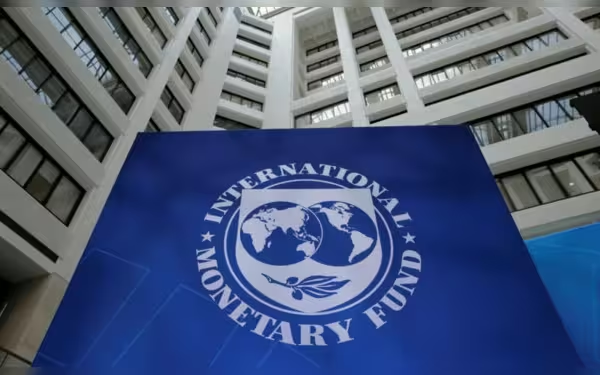Saturday, November 16, 2024 07:45 PM
IMF Warns Pakistan on Banking Sector's Dependence on Government Debt
- IMF highlights risks of sovereign-bank nexus in Pakistan.
- Banks' assets heavily tied to government securities.
- Liquidity challenges threaten banking sector stability.
 Image Credits: dawn
Image Credits: dawnIMF raises concerns over Pakistan's banking sector reliance on government debt, warning of potential economic instability.
The relationship between the government, the central bank, and the banking sector in Pakistan has come under scrutiny, particularly in light of recent warnings from the International Monetary Fund (IMF). This relationship, often referred to as the 'sovereign-bank nexus,' has raised concerns about its impact on the country's economy and financial stability. The IMF's latest report, which accompanies the approval of a $7 billion Extended Fund Facility (EFF) for Pakistan, highlights the risks associated with this interconnectedness.
According to the IMF, Pakistan's banking sector holds the "world's largest proportion of government securities relative to its total assets." This means that a significant portion of the banks' investments is tied up in government debt, which can create problems if the government faces financial difficulties. In recent years, banks have relied heavily on short-term liquidity from the central bank to fund their growing portfolios of government securities, especially as deposit growth has been limited.
The IMF points out that this complex relationship can lead to conflicting policies and regulatory challenges. For instance, if the government needs more funds, it can crowd out private lending, making it harder for businesses to secure loans. This situation is exacerbated by the fact that banks have increasingly financed the government's additional demand for funds through liquidity provided by the State Bank of Pakistan (SBP).
Moreover, the IMF has noted that the government's credit is often more attractive than private lending, which discourages banks from lending to businesses. This has created a scenario where the balance sheets of the government, commercial banks, and the central bank are highly interconnected, affecting the overall strength of monetary policy transmission. In simpler terms, decisions made in one area can have ripple effects throughout the economy.
As the IMF report indicates, the persistent high fiscal deficits and recent external shocks have significant implications for the sovereign-bank nexus in Pakistan. With limited access to external funding, the banking sector has increasingly taken on government debt, which now constitutes around 60 percent of their assets—more than three times the average for emerging market economies.
In this environment, the SBP faces a dual responsibility. It must manage liquidity in the financial system to influence interest rates while also regulating and supervising the banking sector. However, the IMF warns that the sovereign-bank nexus may create potential trade-offs for the SBP in fulfilling its main functions. The report highlights a systematic shortage of liquidity in the banking system, which the SBP must manage carefully.
The IMF's warnings serve as a crucial reminder of the delicate balance that must be maintained between government borrowing and the health of the banking sector. As Pakistan navigates these challenges, it is essential for policymakers to consider the long-term implications of their decisions on both the economy and the financial system. A more diversified approach to funding, with a focus on attracting private investment, could help mitigate the risks associated with the current reliance on government securities. Ultimately, fostering a robust banking sector that supports economic growth will be vital for Pakistan's financial stability and prosperity.













